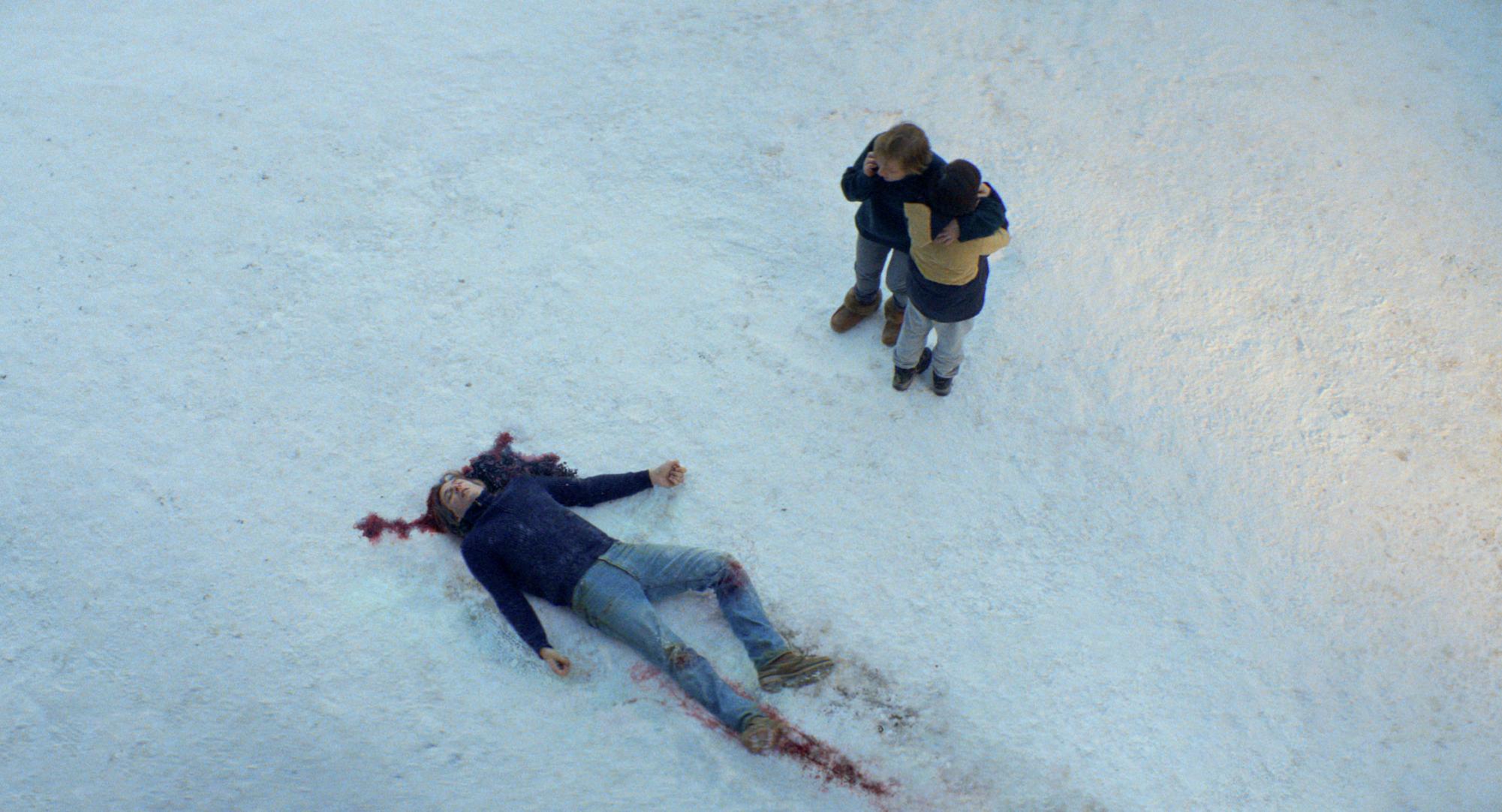Most courtroom dramas tend to be compelling pieces of Oscar bait, and for good reason: revelatory investigations, intense cross-examinations and a restoration to order take a heavy weight off the audience’s shoulders, whether the verdict is “guilty” or otherwise. But French director Justine Triet’s “Anatomy of a Fall” uses this format in a more intriguing way, making the law feel like a cultural immersion experience in both a figurative and literal sense, while also using the courtroom as the foundation for telling the story of a complicated marriage.
The film revolves around the successful German novelist Sandra Voyter (Sandra Hüller), her French husband Samuel Maleski (Samuel Theis) and their visually impaired son Daniel (Milo Machado-Graner), who live together in a mountainside chalet outside Grenoble. From the film’s opening sequence, there is a sense of tension that is almost assaulting between Sandra and Samuel. He blasts 50 Cent from the attic as Sandra is being interviewed by a young journalist, forcing the latter to cut the interview short and leave. Daniel, out for a walk with the family dog Snoop (Messi), arrives home only to discover his father lying on the ground, unresponsive to Daniel’s calls. A frazzled Sandra is now thrust into an alien legal system full of conflicting testimonies and forensic details. The question the audience must find out: Was Samuel pushed out of the attic window, or did he fall of his own will?
While on trial, Sandra finds her life and her marriage gradually unraveled for all to see. We learn in a secretly recorded argument that Samuel never got over the guilt from the accident that left Daniel visually impaired. We also learn of Sandra’s infidelity, Samuel’s writer’s block and the accusations of plagiarism after Sandra borrowed a passage for her literature—the last of which the seemingly scrupulous yet annoying prosecutor (Antoine Reinartz) takes a strange interest in. Samuel’s therapist reveals his accounts of Sandra as controlling after an incident where she asked Samuel to stop taking his prescription, despite Sandra’s own account of his overdose.
The slough of prosecutorial arguments finally causes Sandra to break the norm of linguistic supremacy and speak in English to defend her character after initially treading so carefully in broken French. This was noticeably reflective of the dynamic of her marriage to Samuel, who still found himself speaking English to Sandra in his own home country, but struggled to connect with Daniel, who could only speak French.
As the audience is left to piece the truth together on their own, Triet, along with her co-writer and partner, Arthur Harari, do everything in their power to enlighten yet elude us from the truth, while also giving us an introduction to and simultaneously mocking the French legal system and its peculiarities.
Meanwhile, Sandra Hüller keeps you focused on her in every second of her appearance, masterfully portraying a woman whose intentions are obscure. We never find out whether Sandra is a woman who cared for her husband’s wellbeing or child’s welfare, a manipulative and career-driven thespian who is trying to stay afloat or perhaps a combination of the two.
But Milo Machado-Graner gives the most underdog performance of the year, portraying a young child whose maturity supersedes his perceived youthful nature. He must attempt to reckon with the fact that he lost his father, and just might also lose his mother in the process.
“Anatomy Of A Fall” is a story that always seems out of reach, and that is perhaps what makes it so much more thrilling than your average legal drama. Its portrayal of a woman whose identity is picked apart for the amusement of the law leaves you worrying for her endlessly and admiring her willingness to fight back. At the same time, it causes you to wonder if that willpower could have been the root of her spouse’s downfall. It makes sense seeing the list of prizes the film has acquired since its genesis, from the Cannes Palme d’Or to two Golden Globes, a BAFTA and now five Academy Award nominations, including for Best Picture, Best Director for Triet, Best Original Screenplay and Best Actress for Sandra Hüller, whose performance just might complicate the race even further.



